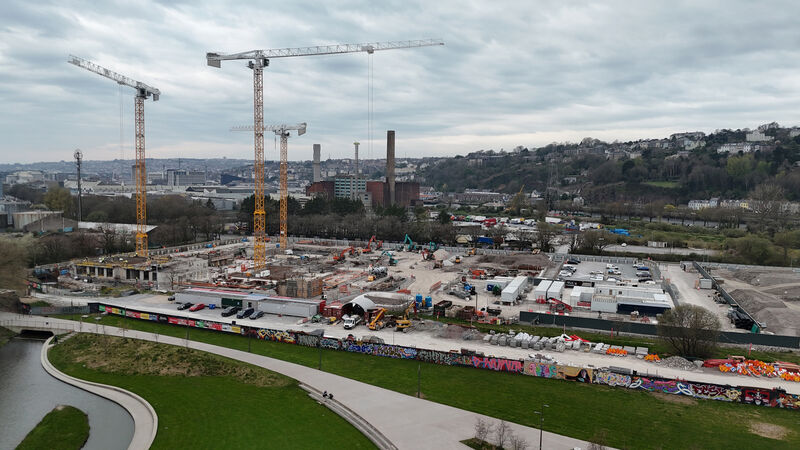Irish economy to grow by more than 4% through 2027 despite heightened geopolitical tensions

Davy said Ireland’s "very strict" regime for rent restrictions had contributed to a collapse in new private rental construction. Picture: Larry Cummins.
Continued strong employment and favourable fundamentals will underpin growth in Ireland for the next two years, with the economy forecasted to grow by more than 4% through 2027.
In its latest economic forecast update, Davy said that despite high spending, Ireland's fiscal position remains strong, with Government debt projected to fall below 60% of gross national income (GNI) by 2026 and corporation tax receipts expected to exceed €30bn annually.











